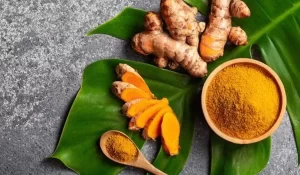With every passing day, the world is getting worse and worse to the point where people have to take their own lives because they are not being compensated fairly for their work. This is why we need to use and take full advantage of things like sustainable practices that ensure the perfect system to survive in this capitalistic environment. Sustainable practices are very important because we make sure that nobody in the entire process of creation or manufacturing does suffer any injustice. For example, in the case of sustainable coffee, we see that if there is a higher demand for the coffee, the greater the farm size will grow, the more work and compensation should be. This means that the farmers are the first to suffer when it comes to the market dropping.
What is sustainability?
Sustainability means focusing on the meeting of needs of the present without compromising the ability of future generations to meet their demands and needs. The entire concept is essentially composed of three different and distinct pillars: the first pillar is known as the economic pillar, also known as profits. The second pillar is known as the environmental pillar and is informally known as the planet. The third pillar, which is known as social, is also called people. These points help in the maintenance of a complex supply chain.
What is sustainable coffee?
In Australia, this leads to two different grades of coffee. The vicious cycle, where farmers will sell their commodity-grade coffee at a set price. Which is often at the price of the cost of production or it will be below the cost of production. This means for the farmers that they will not be able to invest more into the farms and quality of their farms and will thus remain poor. This also means the rest of their families will suffer a great deal of hardship, and their future generations will suffer more as there isn’t enough to inherit. Now, the second grade of coffee, which is known as the virtuous cycle, is the coffee that is sold through the speciality sector, where the price paid is linked to the quality. The higher prices mean a greater amount of revenue for the farmers. That means that they will be able to invest more time and more money into improving the quality of their coffee, ensuring that the coffee form will be able to lift his life and the people who are dependent on him.
How is coffee sustainable?
It is in this speciality sector and virtuous cycle where sustainable coffee is grown. Sustainable coffee is the backbone of providing a hundred percent compostable, biodegradable and cruelty-free coffee. Sustainable coffee is the coffee that is grown and manufactured particularly for its sustainability. This includes coffee that is certified and recognised as fair trade, has a rainforest alliance and is organic. The coffee is made sustainable by using practices such as better crop management and water use practices. This uses pheromone boxes to ward away insects without the use of pesticides, and it composes coffee bean waste as fertiliser. This uses coffee held as fuel in place of cutting down precious eucalyptus trees. This sustainable coffee is grown in a way that not only conserves the environment and nature in which it was grown but also provides better livelihood and pays for the people and the workers who grew and processed it.


















Be First to Comment